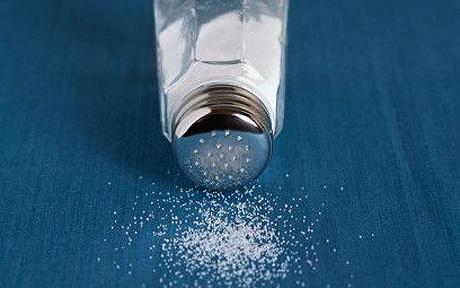Kidneys have the ability to regulate the sodium levels. If the sodium in the body is too small, a hormone is released which increases the amount of sodium kept in your body by reducing the amount excreted in the urine. But this rarely happens “events” in our bodies, and because of this huge amount of salt that we eat. It is estimated that most people in civilized countries consume twice as much salt than the human body would normally require.
Salt and blood pressure
Literature made the connection between salt intake and blood pressure since 100 years ago. People who consume a greater quantity of salt than the average, have higher blood pressure. And from there and serious damage to health, is not a long way.
Excessive consumption of salt was put in touch with other diseases exacerbated by water retention caused by salt, such as:
– Heart failure
– Kidney disease and kidney stones;
– Swelling;
– Stroke
– Gastric cancer;
– Left ventricular hypertrophy;
– Osteoporosis.
Salt and calcium loss
Excessive consumption of salt increases the amount of calcium excreted in the urine, which can lead to osteoporosis over time or decreasing bone strength.
Sodium-Potassium interaction
The human body is adapted to a diet rich in potassium, not sodium. But the modern diet, rich in processed foods full of salt, is exactly the opposite of what the body needs. Potassium is effective in lowering blood pressure, but modern food processing tends to decrease potassium and rise sodium levels. It is therefore recommended consumption of unprocessed foods such as fruits, vegetables, whole grains.
To reduce the amount of salt in your diet, you need to take into account some suggestions:
– Avoid very salty foods, such as pickles, olives, sausage, cheese, salted fish, canned etc.
– Avoid eating junk food;
– Gradually give up processed foods;
– Buy fresh fruits and vegetables instead of canned;
– Do not add salt to food preparation.
